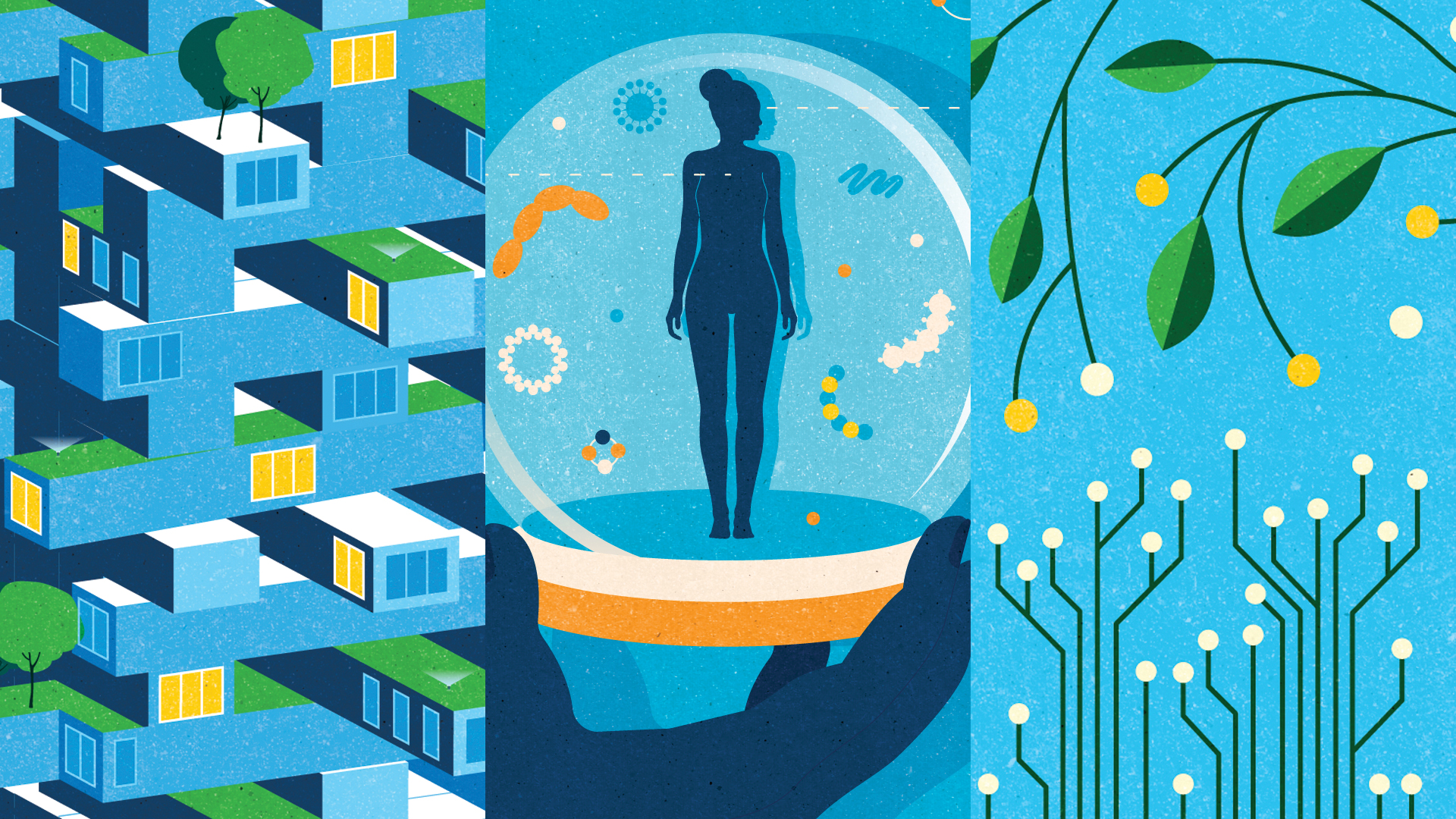By: Alison Rutka
3 Apr, 2023

At CIFAR, this question is a critical starting point for exploring fundamental issues facing our species today.
Back in 2021, we challenged researchers to think critically about the long-term intersections between humans, science and technology, social and cultural systems, and our environment. CIFAR’s third Global Call for Ideas invited bold proposals for new research programs that examined the “Future of Being Human”, confronted the dynamic problems facing our world and offered the potential to transform our planet for the better.
The excitement from the research community in tackling this important work was unmatched. Experts from across disciplines and geographical boundaries proposed daring and unprecedented lines of research that offered unique possibilities for impact.
After months of diligent work and analysis by the team at CIFAR, we are proudly sharing the results of CIFAR’s third Global Call for Ideas.
Three new bold proposals will join the roster of CIFAR’s programs: The Multiscale Human, Humanity’s Urban Future, and Future Flourishing.
The Multiscale Human will explore whether it’s possible to create a map of the human body, to understand how our body works, from organs right down to the molecular level. Bringing together biologists with imaging computational specialists and data analysis and visualization, CIFAR’s researchers will integrate data from various spatial and temporal scales across the global population and over time — no easy feat. But with the potential to unlock new insights into the complexities of humans, this research has the transformative potential to guide a new era in precision health and medicine.
Future Flourishing will examine the possibility of living without the lens of human exceptionalism, the idea that humans are unique from all other organisms. CIFAR researchers in this program span disciplines — philosophers, historians, curators, conservators, artists and anthropologists — working together to fundamentally reconceive how humans operate and interact with animals, plants, viruses and machines in an effort to redefine what it means to be successful and to flourish.
Humanity’s Urban Future will study what a liveable, adaptable urban environment should look like to drive dialogue and solutions to establish a better city of tomorrow. Using six cities as test-cases for exploration, CIFAR researchers will examine urban infrastructure (both material and institutional), political divisions, questions of scale, climate change, and other key issues facing cities today. By understanding exactly what makes a liveable and prosperous city, this program can imagine the transformations needed to plan for humanity’s growing urban future.
The possibilities that could be unlocked through the work of each of these programs is limitless. In truth, their work in fundamentally understanding the future of being human will likely have implications that we may not realize until well into the future, beyond our own lifetimes. But, really that’s the genius of their work — the potential to provide tangible impacts for future generations, for both humanity and the planet.
We congratulate all of the researchers selected in this year’s Global Call for Ideas, and look forward to seeing the development of their research.
CIFAR is a registered charitable organization supported by the governments of Canada and Quebec, as well as foundations, individuals, corporations and Canadian and international partner organizations.